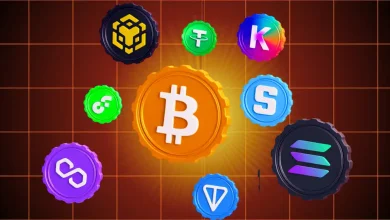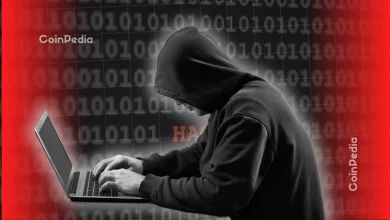
Two mining pools now control over 51% of Bitcoin’s hashrate, sparking decentralization fears.
Foundry USA, Antpool, and F2Pool dominate mining, pushing smaller Bitcoin miners further behind.
Stratum v2 and non-custodial pools may reduce risks, but adoption remains worryingly limited.
Bitcoin, the world’s largest cryptocurrency, which has long been seen as the symbol of decentralization, but that image is now being tested. Recent on-chain data shows that just two mining pools now control over 51% of the network’s hashrate.
While this doesn’t mean an attack is happening, it opens the door for one, and that’s enough to raise concerns.
What a 51% Attack Could Mean
At the heart of the issue is what’s known as a “51% attack.” When a group controls over half the network, they can technically reorder transactions, censor payments, or attempt double-spends.
Leon Waidmann, Research Head at Onchain Foundation, recently pointed out that pools like Foundry USA, Antpool, and F2Pool now dominate the space, while smaller miners are losing ground. This imbalance has long worried the Bitcoin community.
Meanwhile, they cannot create new Bitcoin out of nothing or break digital signatures, but even having this much influence makes the system less secure. In short, the risk is not about what has happened, but about what could happen.
History Repeats Itself?
This isn’t the first time the community has faced such a scare. In 2014, a single mining pool briefly crossed the 50% mark. Back then, miners quickly moved away after community pressure, and the balance was restored.
Something similar could happen again, but the concern lies in how long it may take for miners to react if the situation repeats.
Can Bitcoin Fix This?
Meanwhile, there are possible solutions. New tools like Stratum v2 could give miners more control by letting them decide which transactions to include. Faster switching between pools and non-custodial pool designs could also help.
But these solutions are not yet widely used, leaving Bitcoin with a centralization problem that needs urgent attention.
The situation doesn’t mean Bitcoin is broken, but it does act as a warning.
As of now, the Bitcoin price is trading around $113,864, reflecting a slight rise seen in the past 24 hours.
Never Miss a Beat in the Crypto World!
Stay ahead with breaking news, expert analysis, and real-time updates on the latest trends in Bitcoin, altcoins, DeFi, NFTs, and more.
FAQs
Yes, a single mining pool briefly exceeded 50% hashrate in 2014. Community pressure prompted miners to redistribute, restoring network balance.
Proposed solutions include adopting Stratum v2 protocol, enabling faster pool switching, and implementing non-custodial pool designs to decentralize control.
No. Attackers cannot create new coins or steal funds from existing addresses, but they can censor transactions and reverse recent ones to double-spend.
Trust with CoinPedia:
CoinPedia has been delivering accurate and timely cryptocurrency and blockchain updates since 2017. All content is created by our expert panel of analysts and journalists, following strict Editorial Guidelines based on E-E-A-T (Experience, Expertise, Authoritativeness, Trustworthiness). Every article is fact-checked against reputable sources to ensure accuracy, transparency, and reliability. Our review policy guarantees unbiased evaluations when recommending exchanges, platforms, or tools. We strive to provide timely updates about everything crypto & blockchain, right from startups to industry majors.
Investment Disclaimer:
All opinions and insights shared represent the author's own views on current market conditions. Please do your own research before making investment decisions. Neither the writer nor the publication assumes responsibility for your financial choices.
Sponsored and Advertisements:
Sponsored content and affiliate links may appear on our site. Advertisements are marked clearly, and our editorial content remains entirely independent from our ad partners.







